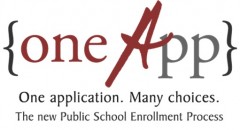NACSA Blog
Press Releases
 |
NACSA Selects Third Cohort for Leaders ProgramThe success of the charter school sector depends on having strong authorizers capable of managing a portfolio of high-performing schools and ensuring that every charter school provides an outstanding education to its … |
 |
Strong Authorizing Practices Produced Better Schools for 230,000 Students in 2013More than 230,000 students are attending better schools in 2013 because of the actions of charter school authorizers across the country, according to the National Association of Charter School Authorizers (NACSA). Authorizers … |
 |
National Association of Charter School Authorizers and the Charter School Growth Fund release recommendatons for successful replication of high-performing charter schoolsState policies must change to differentiate and grow high-performing charter schools and weed out the low performers according to a report released today by the National Association of Charter School Authorizers (NACSA) … |
 |
NACSA Calls on Nation’s Charter School Authorizers to Act Now to Maintain AccountabilityIn a statement released today, the National Association of Charter School Authorizers (NACSA) cautioned that while the upcoming shift to Common Core standards provides a long-term opportunity to improve the nation’s schools, it … |
 |
NACSA releases recommendations on accountability measures for alternative charter schoolsThe National Association of Charter School Authorizers (NACSA) today released Anecdotes Aren’t Enough: An Evidence-Based Approach to Accountability for Alternative Charter Schools, a report that sets out recommendations for appropriate accountability systems … |
 |
Real Parent Empowerment without a WarThere has been a lot of heated rhetoric over the spread of so-called “parent trigger” or “parent petition” laws which allow parents and in some cases teachers to vote to restructure the … |
 |
Playing Political Football with Kids’ LivesNACSA’s president and CEO, Greg Richmond, has a op-ed in the Chicago Sun-Times arguing that charter schools are being used in Chicago’s “school wars” in ways that only serve adult interests and harm kids. While … |
 |
Protecting Student and Public InterestsIn a recent article from Renee Schoof at McClatchy, NACSA’s Alex Medler weighed in on a provision in a charter school bill in North Carolina that would allow charter schools discretion over “whether … |
 |
Helping Charter Schools Better Serve English Language LearnersThis week the National Alliance for Public Charter Schools released Serving English Language Learners: A Toolkit for Public Charter Schools. This timely resource is designed to provide charter school leaders with clear guidance … |
 |
School Choice for AllWhile most of the education-related news coming out of Philadelphia lately has been about school closures similar to those just announced in Chicago, there is other work going on that has the … |
 |
Scaling Quality, Closing FailureA new report, Searching for Excellence: A Five-City, Cross-State Comparison of Charter School Quality, by researchers at Public Impact and published by the Thomas B. Fordham Institute examines charter school performance in five cities, Albany, Chicago, … |
 |
Postcard from the Statehouse: St. Paul, MNHello from a chilly St. Paul, Minnesota! Earlier this week, the House Education Committee chose to incorporate into an omnibus bill, HF 998, legislation that would create a closure provision for charter … |
 |
Core Principles and Essential PracticesThis week NACSA released the second edition of its Index of Essential Practices. The Index articulates a set of practices for authorizers that can significantly improve the quality of their work—and in turn … |
 |
Accountability in MinnesotaCheck out the new op-ed from Al Fan of Charter School Partners and NACSA’s Alex Medler on the need for greater accountability for the state’s charter schools. “A bi-partisan bill is making … |
 |
Postcard from the Statehouse: Nashville, TNGreetings from Nashville! Earlier this week, the House Education Committee passed HB 0702, legislation that would create the State Charter School Panel, an independent chartering board. The Panel would serve as an … |